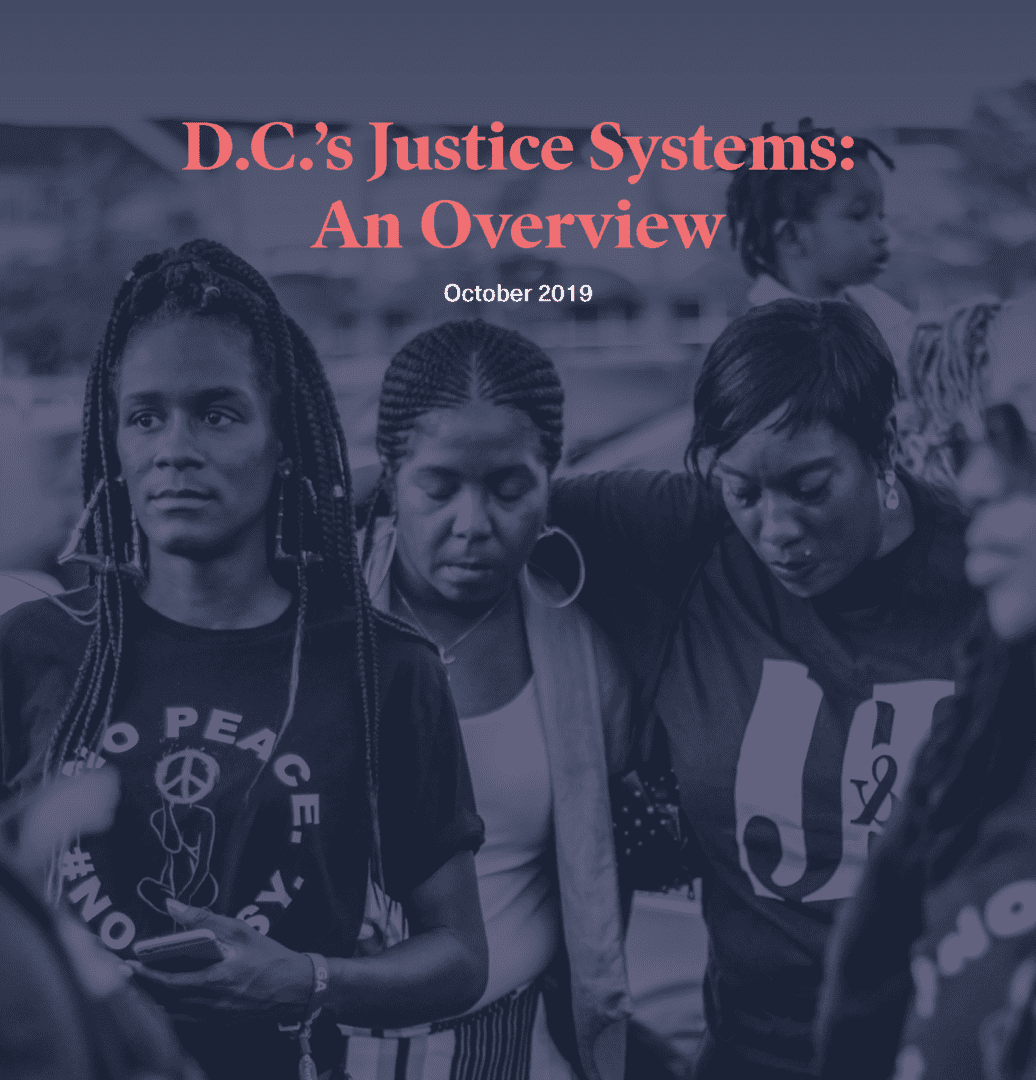The Best Ideas Bubble Up From Communities
It’s a philosophy that Public Welfare Foundation feels so strongly about that we shifted our grantmaking approach to get closer to the communities where transformative approaches to justice are happening. This on-the-ground approach allows Public Welfare Foundation to partner with more proximate, community-rooted organizations that are already working on promising solutions to systemic problems.
It only made sense to begin this new approach to grantmaking in our hometown of Washington, D.C. The District has many governance and structural traits that make it unique nationally, but it is these same traits that make it particularly challenging when it comes to the administration of justice. Yet the city is ripe for reform, offering policymakers with a willingness to test new solutions and proposed practices that could shift how the community responds to its young adults.
Focus Areas for DC Grantmaking:
- Building a coalition of partners to shape and implement an agenda that reimagines what is possible for youth and young adults who come in contact with the justice system.
- Investing in community-centered models of support that reflect the needs and dreams of young people and their families.
- Increasing capacity among proximate organizations in the most affected neighborhoods.
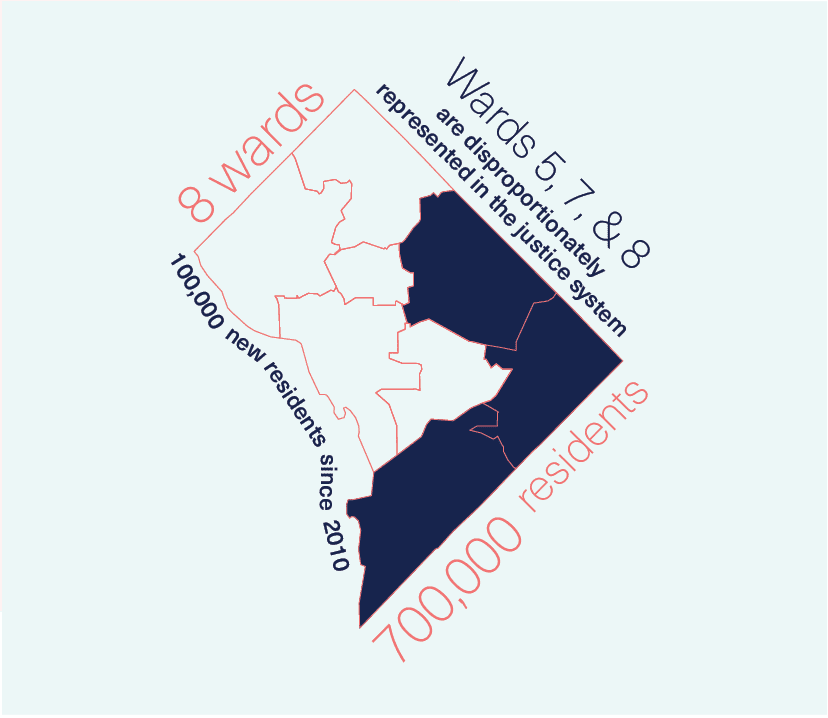
Anchoring Our Work in Communities
Public Welfare Foundation spent the first part of 2019 building relationships, planning, and working with local organizations to develop our DC grantmaking strategy. To learn more about the strategy development process, check out Lessons in Place, Grantmaking & the City Within Our Nation’s Capital.
We partnered with Council for Court Excellence and Georgetown Juvenile Justice Initiative to learn more about D.C.’s justice systems. The findings reiterate that D.C. is one of the heaviest policed cities in the country; racial disparities permeate every point of the system; and there is a growing need to address the intersection of violence and incarceration among D.C.’s young adult population. We worked with an editor to make the high-level findings of that work publicly available in D.C.’s Justice Systems: An Overview.
The Foundation hopes its D.C. strategy will help accelerate emerging ideas, organizations, and leaders all committed to shifting how the community and its systems respond to youth and young adults. These principles and priorities were directly shaped by the landscape analysis and a series of community listening sessions led by the Foundation and its partners.
Scroll through our grants database for details about D.C. investments.
Getting Local: District of Columbia
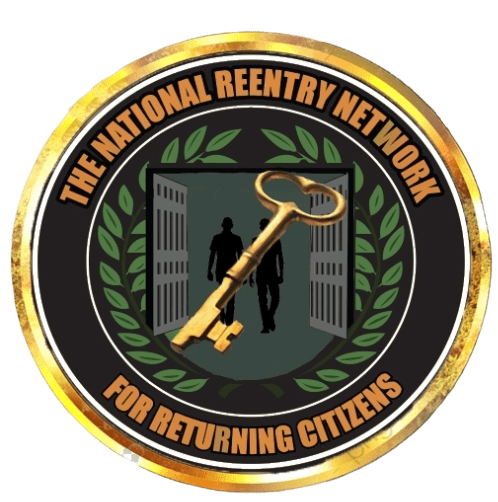
National Reentry Network for Returning Citizens
The National Reentry Network for Returning Citizens (NRNRC) works to address the needs of justice-involved citizens in the District of Columbia, and to build a strong local network of individuals returning from incarceration. NRNRC delivers a range of supports to address barriers to reentry, promote restorative practices, reduce recidivism, and uplift and organize the community of returning citizens in neighborhoods most impacted by incarceration.
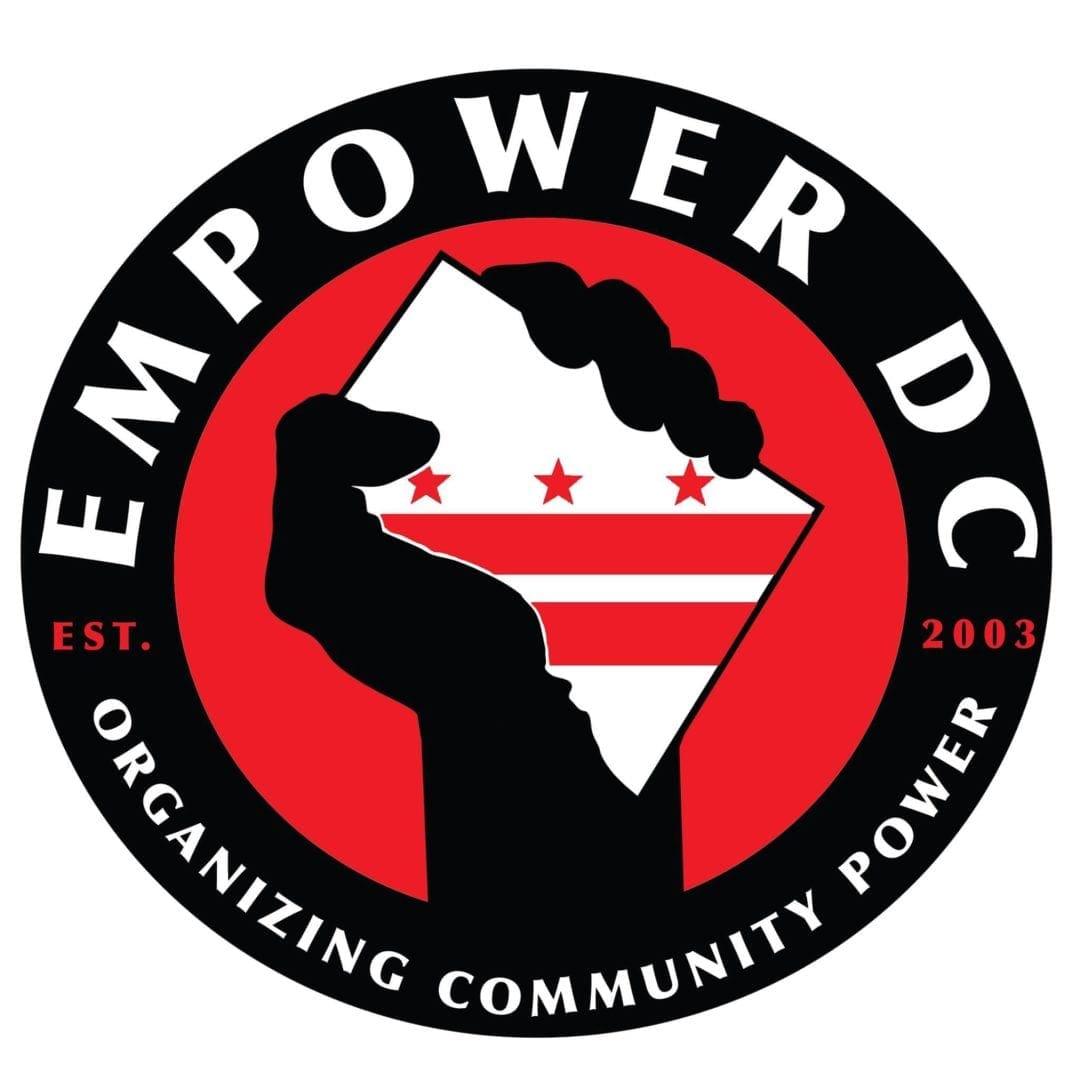
Empower DC
Empower DC is a women of color-led, multi-issue base building organization. It works to address structural racism and build collective power and agency among people of color and low- and moderate-income DC residents. Empower DC’s work is rooted in community with a commitment to stopping the displacement of low-income African American residents in DC during a time of unprecedented gentrification and lack of affordable housing – issues that further compound the impact of incarceration.
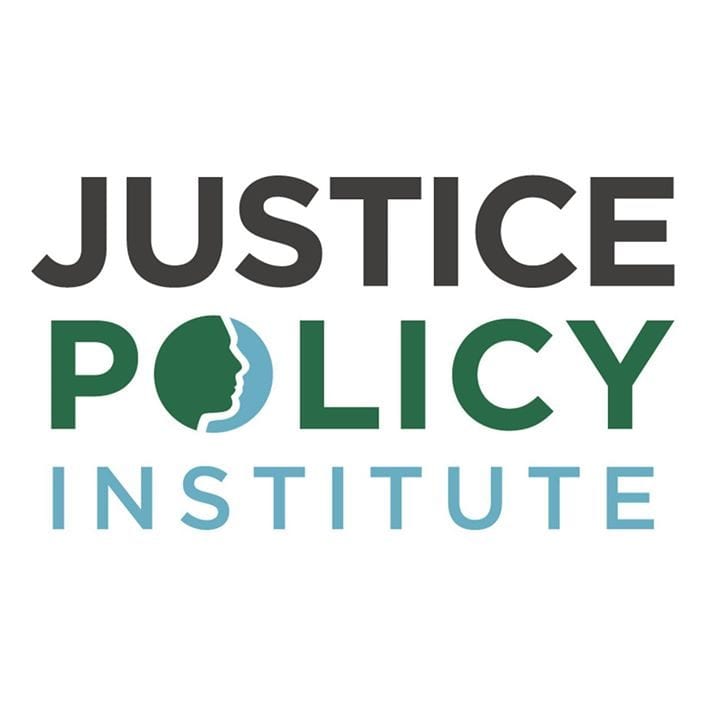
Justice Policy Institute
Justice Policy Institute (JPI) is a D.C. based national nonprofit that utilizes policy research and dissemination, communications, and organizing to promote meaningful and systemic change to the justice system at both the national and local level. JPI is organizing a diverse array of leaders, inside and outside of systems, to improve the overall treatment of justice involved emerging adults in D.C. and creating a collective that can serve as a model for cross-sector, community-led action in other jurisdictions.
